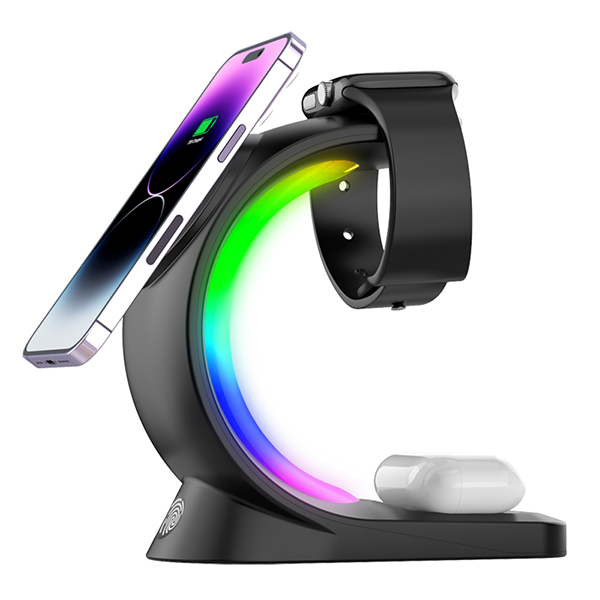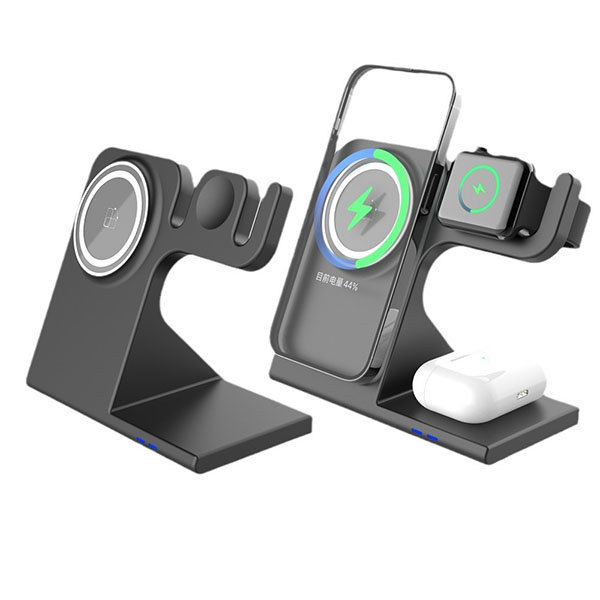Introduction
Wireless charging has become a popular and convenient way to power our devices, allowing us to simply place our phones on a charging pad without worrying about tangled cords. However, many users, including myself, have experienced frustratingly slow charging speeds when using wireless chargers. This article aims to delve into the reasons behind slow wireless charging and provide practical solutions to enhance charging efficiency.

Common Reasons for Slow Wireless Charging
1. Incompatibility Between Charger and Phone
One of the primary reasons for slow wireless charging is the incompatibility between the charger and the phone. Wireless charging operates on specific technical standards, such as the Qi protocol. If your charger does not support the same standard as your device, it may not deliver optimal power. Additionally, the power output of the charger must match the phone’s requirements; using a low-wattage charger can significantly slow down the charging process.
2. Hardware Limitations of the Phone
Some smartphones have inherent hardware limitations that restrict their maximum wireless charging power. For instance, while many Android devices support fast wireless charging, iPhones may have different specifications that affect their charging speed. Understanding your device’s capabilities is essential for maximizing charging efficiency.
3. Phone Cases or External Obstacles
The presence of a thick or metallic phone case can hinder electromagnetic induction, which is crucial for wireless charging. If you notice slow charging speeds, consider removing your phone case during charging. Additionally, ensure that there are no foreign objects between your phone and the charger that could obstruct the connection.
4. Improper Placement of the Charger
Wireless chargers rely on precise alignment between the charger and the device’s internal coils. If these coils are misaligned, charging efficiency decreases significantly. To avoid this issue, use chargers designed with alignment features or simply adjust your phone’s position on the pad until you find the optimal spot.
5. Environmental Temperature and Heat Dissipation Issues
Charging speed can also be affected by temperature. High temperatures can trigger built-in protection mechanisms in smartphones that reduce charging power to prevent overheating. To enhance performance, ensure that your charging environment is well-ventilated and avoid placing your device in direct sunlight or hot areas while it charges.

How to Improve Wireless Charging Speed
1. Choose the Right Wireless Charger
Investing in a high-quality wireless charger that supports fast wireless charging standards is crucial. Look for chargers that match your phone’s maximum power requirements to ensure efficient energy transfer.
2. Optimize Your Charging Environment
Before placing your phone on a charger, remove any cases or covers that may interfere with charging. Additionally, keep the surface of the charger clean and free from debris to prevent any disruptions in connectivity.
3. Correctly Position Your Device
Align your phone correctly on the charger to ensure optimal coil connection. Many modern chargers come with indicators or guides to help you position your device accurately.
4. Update Device Firmware
Regularly check for firmware updates for both your phone and wireless charger. Manufacturers often release updates that improve performance and compatibility with various devices.
5. Consider Wired Charging as an Alternative
While wireless charging is convenient, it may not always be the fastest option available. In situations where time is of the essence, using a wired charger can provide significantly faster results compared to wireless methods.
Recommended Wireless Chargers for Efficient Charging
Here’s a list of recommended wireless chargers that support fast charging:
| Charger Model | Power Output | Compatibility | Price Range |
| Anker Wireless Charger | 10W | Qi-compatible devices | $20-$30 |
| Belkin Boost Up | 15W | iPhone & Android | $30-$50 |
| Samsung Fast Charge | 9W | Samsung devices | $25-$35 |
| Mophie Wireless Pad | 7.5W | iPhone | $40-$60 |
| iMuz Wireless Charger | 15W | Qi-compatible devices | $8.0-$15 |

Conclusion and FAQ
In summary, there are several factors contributing to slow wireless charging speeds, including incompatibility issues, hardware limitations, external obstacles, improper placement, and environmental conditions. By understanding these factors and implementing suggested solutions such as choosing appropriate chargers and optimizing your environment, you can significantly enhance your wireless charging experience.
FAQ
Can wireless charging speed match wired charging?
No, generally speaking, wired charging tends to be faster than wireless due to direct energy transfer without conversion losses.
Can I use my old wireless charger with my new phone?
It depends on whether your old charger supports the same standards as your new device; check compatibility before use.
Is it normal for removing my phone case to improve charging speed?
Yes, many cases can interfere with electromagnetic induction; removing them often improves efficiency.
Why does my charger sometimes fail to charge completely?
This could be due to misalignment or overheating; ensure proper placement and allow for adequate cooling.
Does fast wireless charging affect battery lifespan?
While fast charging is generally safe, frequent exposure to high heat can impact battery health over time; using quality chargers helps mitigate this risk.
By following these guidelines and understanding how wireless charging works, I hope you find a solution to enhance your device’s performance while enjoying the convenience of wireless technology!
